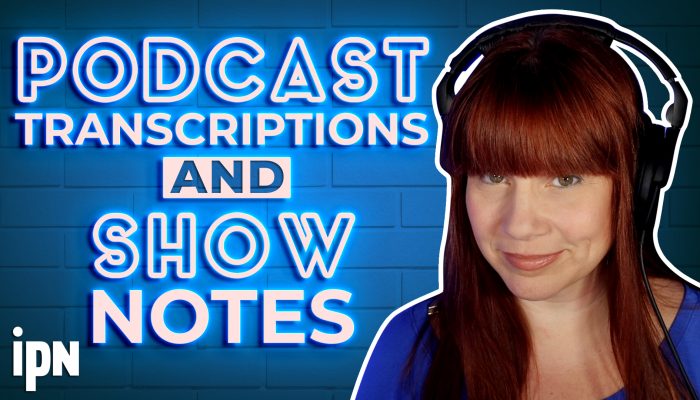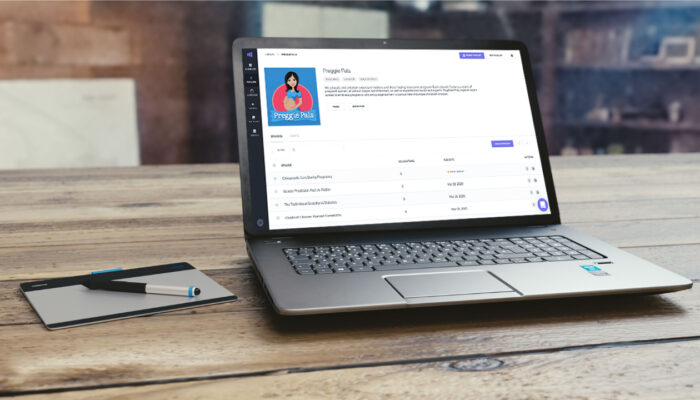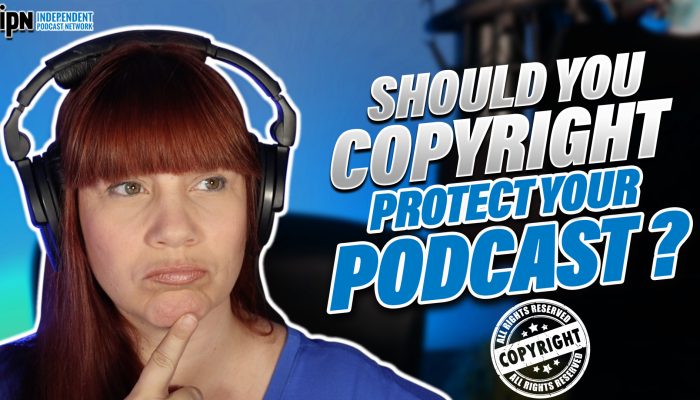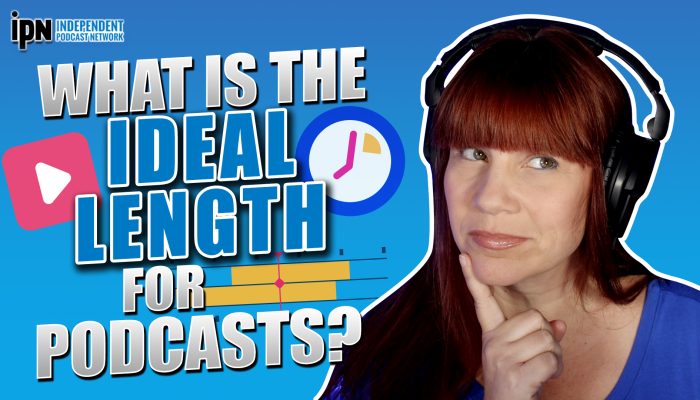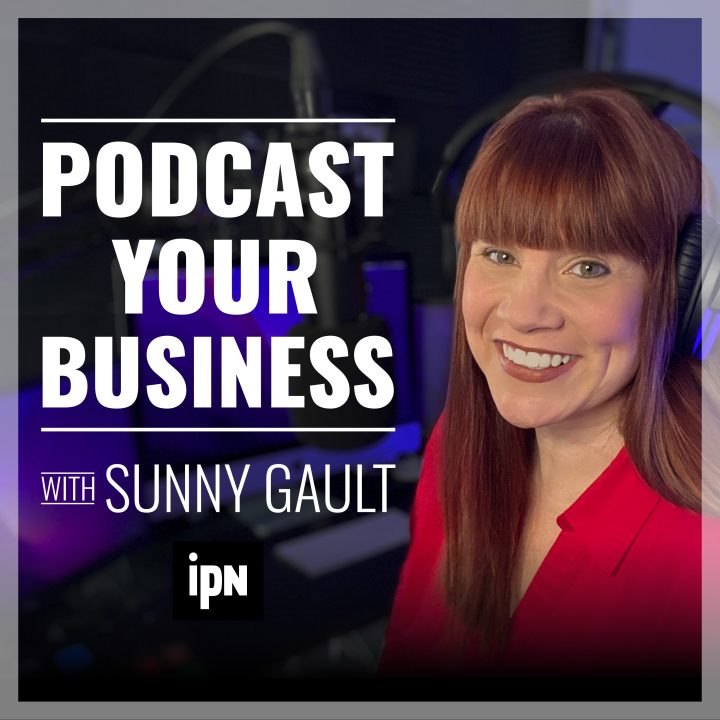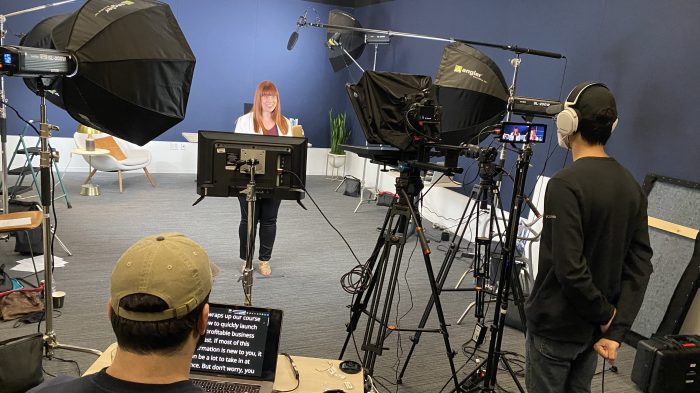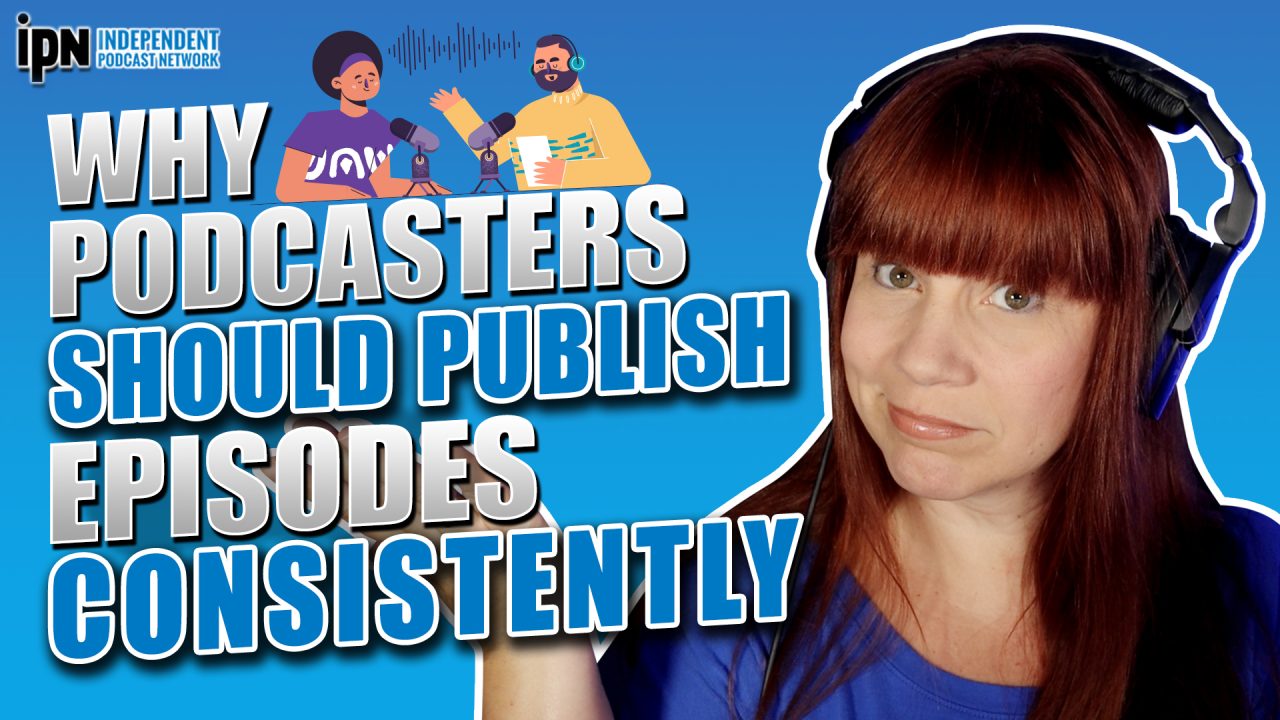
Keeping a schedule is good for listeners, advertisers, and podcasters
Picture this. You order something on Amazon, which is supposed to arrive on a certain day at a certain time. So, you wait patiently. But then the day comes and your package is nowhere to be found. It’s a bit of a bummer isn’t it? That’s how podcast listeners feel when you don’t release your episodes consistently. And if you disappoint them too many times, they may start shopping elsewhere. Publishing your episodes consistently isn’t just good for your listeners, but advertisers expect it as well. On today’s episode, we’ve got some great tips to help keep your podcast on track.
Here’s what we’re talking about today…
- Why your publishing schedule should be the foundation of your show
- How to create a schedule for publishing your podcast
- The importance of having an episode workflow
- Tips to help you publish consistently
Improve Your Podcast Workflow
Check off each of these items to ensure you don’t miss anything important when you’re producing your podcast episodes.

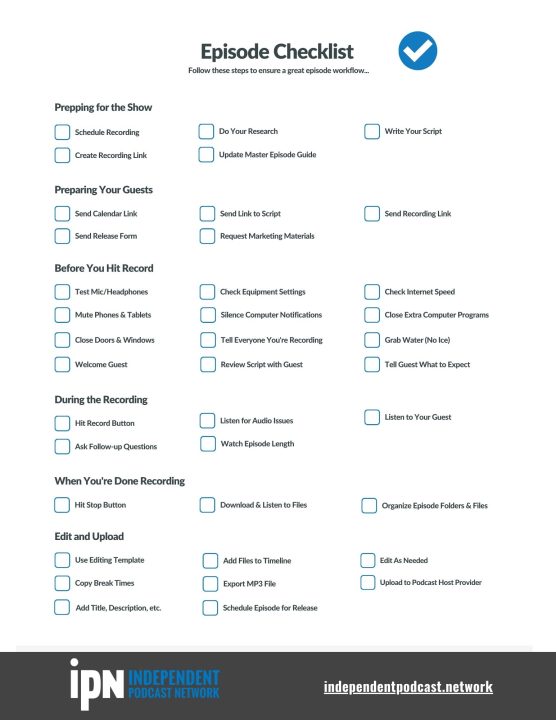
Episode Transcript
0:02
Picture this, you order something on Amazon, which is supposed to arrive on a certain day at a certain time. So you wait patiently. But when the day comes, your package is nowhere to be found. It’s a bit of a bummer, isn’t it? Well, that’s how podcast listeners feel when you don’t release your episodes consistently. And if you disappoint them too many times, they may start shopping elsewhere. Publishing your episodes consistently isn’t just good for your listeners, though. But for advertisers, they expect it as well. On today’s episode, we’ve got some great tips to help you keep your podcast on track. Take it away, Mister radio man. Podcast Your Business.
0:52
Hello, welcome to Podcast Your Business. I’m Sunny Gault. If you haven’t listened to one of our episodes before? Well, I’m a podcast coach. And I’m a mentor. And I’ve been podcasting for a while now about 17 years. And I’ve done a lot of different things during that time. I’m currently the founder and CEO of a company called Independent Podcast Network. You can find us at https://independentpodcast.network. And we help with you know, podcasters in multiple ways, if you’re brand new to podcasting, we just have a ton of free resources, including whole courses on how to podcast. And then if you’re a little bit more advanced, you know, you’ve had a chance to grow your audience and you want to monetize. Well, we also work with podcast one on one and help them with monetization. But today, I am here to help you create amazing podcasts specifically for your business. And we do this by mastering the five P’s of podcasting. All right, the five P’s of podcasting. This is something I branded and created when I launched my first podcasting course, and the whole course was set up according to these five P’s. They are prep, plan, produce, promote, and profit. And I believe if you can master those, then you’re going to have a successful podcast. So what we do in Podcast Your Business for these episodes, we pick one of those P’s, and we talk about something that falls into that category. So Mr. radio man, which of the five P’s are we talking about today? Promote.
2:29
When you’re thinking about publishing your episodes, you may think that’s part of the producing process. And it kind of is, but bear with me here, I’m going to take it one step further, because it really focuses on why you are publishing when you are publishing. And the reason that you’re going to do this on a consistent basis is what I’m going to encourage you to do today is because you need to promote your show in a certain way. People have expectations. As I was mentioning in the intro for today’s episode, right? Your audience grows accustomed to when you’re going to be releasing content, you need to stick to that. And there’s some other things that you need to know as well. So that’s why we’re talking about this topic today. It’s why it falls under promote. The main takeaways that you’re going to have after listening to today’s episode are, why your publishing schedule should be the foundation of your show. Why is that important? We’re going to discuss that we’re also going to talk about how to create a schedule for publishing your podcast because I found that a lot of people it’s not that they don’t know that you’re supposed to do that. But it’s it’s the logistics like how do you really make that work in real life, right. We’ll also talk about the importance of having an episode workflow and what that looks like. And then I’m going to give you some tips that have really worked for me on how to publish consistently. Because there’s a lot of different tools and resources that you can use to make your life more simple. And it’s getting more and more simple as the years go on. When I started podcasting 17 years ago, this was not simple. This was not right out of the box stuff. We were manually putting together our RSS feeds. That’s how old I am. So those are those are the main topics we’re going to talk about today. And we’re gonna get started right after this quick break.
4:19
So why should when you publish your episodes, why does that hold so much weight? Right? Because it’s really big in podcasting. I don’t feel like you see this nearly as much in TV. Maybe you see it kind of sorta in radio, but with podcasting, it is a really big deal. And I think this goes back to how people find out about podcasts because there’s not like a really great resource for that. I mean, the industry is getting better and better. But really, it’s word of mouth. We’ve always said that podcasters have always said Listen, my best listeners come from someone else recommending it You know, but like when you open up your podcast app, what are the top podcasts that are being promoted to you, they’re usually the ones that are really big and have celebrities in them that you would already find out about, right. So what the smaller publishers have to do or smaller podcasters have to do is we have to rely on other ways to draw on our audience and keep them and one of the best ways to do that is to publish your podcast episodes consistently. Now, we talked a little bit already about the reasons why you should do that, first of all, for your listeners, because those of you that listen to podcasts, you can probably relate to this. But we as humanity, we are creatures of habit, we expect certain things to be done at certain times, you may even plan out your week that way, see, most of us think like on a week by week basis, maybe you’ve got certain things that you do daily as well. But when we plan, it’s usually week by week, there may be some things that happened monthly, but for the most part, it’s week by week. And I think that’s why most podcasters that release weekly episodes do so well. It’s a really good cadence. And in order to get your podcast to be heard or seen by more people, you usually want to follow that similar cadence, right? So we do this for our listeners.
6:16
But we can also do this for our advertisers for those of you who are at a point where you’re working with advertisers, because advertisers expect you to treat your podcast like a business, they want to know that you’re serious, it doesn’t matter if you’re recording your podcasts in your garage, I literally record everything I do in my garage, it’s set up as a studio, but it’s still a garage. But I run a business out of there. And advertisers work with me all the time. And they trust me why for many reasons. But one of the things I do is I release episodes on a regular basis. And that shows to them that I am serious. If you have a business, you don’t just stop working on Mondays, because you’d prefer to go fishing, at least most people don’t unless you’ve got someone else that can take over and run your business while you’re gone. Right. So you’re not going to do that with your podcast either. And this is also really important. Keeping on a consistent schedule is also really important for those of you who are considering dynamic ad insertion. So I’ve got a whole course that goes into a lot of detail about dynamic ad insertion. But that allows you to put content into your show electronically and remove it. So this is great for promos, and ads and things like that. But usually, when you’re working with an advertiser, they’re going to charge or they’re you’re going to charge them based on the amount of downloads per month. So I’ve worked with some podcasters, that didn’t really understand how this works. And they would just take a couple days off, not realizing that them not releasing new episodes means their total number of downloads for that month is going to go down. So maybe I promised a advertiser that this podcaster or the podcast was going to bring in 10,000 downloads for the month, and they normally do, but they decided to take two episodes off for spring break or whatever. And now they’re at 5000, then we’ve got what we call them make good. We’ve got to somehow make that up to the advertiser. So that’s why it’s important that you publish consistently for your advertisers.
8:20
And then last, but certainly not least, you need to do this for you. Because you have to have control over your podcast, do not let your podcasts control you. What do I mean by that? Well, when things start to spin out of control, then we get lost, right we as podcasters. And if you stay on a consistent schedule, you are controlling the show, the moment you stop producing on a regular basis, and then you’re not sure when you’re going to record and it’s supposed to be after you put the kids to bed, but then you were so tired, and it didn’t happen for a couple of weeks. That doesn’t work and you have lost control, you need to be on some sort of a routine. Now, quick little sidebar has nothing to do with podcasting. But we know if you have if you do things on a routine basis, or a regular basis, even if it doesn’t feel like routine and the beginning, you’re like every day, this is what happened with me. I’m like, I’m gonna get up and I’m going to work out. And I know I’m not going to feel like it and I know I’m not going to maybe get enough sleep the night before. If I get up when I need to get up, which is 545 in the morning. I’ve got to get up Monday through Friday, I’m going to make working out a priority. And I knew if I did that for at least a couple of weeks, but I think it ended up you know being a little bit longer than that. Well, hey guys, guess what? I’m almost five months into working out Monday through Friday, getting my butt up at 545 in the morning. So I’m ready by six o’clock in the morning to do a workout video. And it’s the same thing with your podcast. I’ve done this with podcasts, your business I’ve done this with other podcasts as well you set a date As a time and you make it happen, it’s a little bit harder to do if you’ve got gas because you, you know, have to work with their schedule. But it is possible. And that’s so you maintain control over everything and bottom line your sanity. So don’t let your podcasts control you. Alright, let’s talk about how to create a schedule for publishing your podcast. My recommendation is to think about the big picture first, what are your priorities with your podcast? Who can help you? These are some of the questions that we bring up in a podcast course that I have available on Independent Podcast Network. It’s called prep, we have the five P’s right, we have prep, and then plan and prep is the first thing you do. And it’s about asking yourself these kinds of of questions, what kind of podcast do I want to have? What’s important to me who can help me? So think about the big picture first, and hopefully, you’re doing this, it’s easier to do it at the start of your podcast. But even if you have a podcast already, and you haven’t asked yourself these questions, go back and do it. Think big picture first. Now, for example, podcast, your business, this podcast, I knew when I launched it, I wasn’t going to release episodes forever, I’m actually trying something a little bit different with podcast your business. Because the content is evergreen, it is always going to be good. And if it’s not, if there’s something that changes in the industry, I’ll you know, remove the content. But in general, you could listen to the very first episode I created and it holds just as much weight as the episodes I released. Now that’s called Evergreen.
11:38
And so my plan from the very beginning, I knew I was going to release weekly episodes. But I was only going to continue to release those episodes until I ran out of topics to discuss and I wasn’t sure when that was going to be. And if you know, I’ve got a growing list of topics and I just, you know, keep adding stuff to it when I think about it. Or maybe I go to a podcasting conference or something. And I’m like, oh, we should do an episode on that. But my plan from the beginning, do weekly, because I’ve already told you, weekly seems to be the right cadence. And then do it until you run out of topics. And because of that, because I knew this was more about creating a library of content. It wasn’t based on advertising, I am not trying, I know you do hear ads in the show. But I am not trying to make money with the show that way. A lot of that is just to show you guys what ads sound like. But my goal with this podcast is to create a library of content. So whether you you know happen to find us online, or your new podcasts we’re working with to help monetize? Well, we can just instead of having to explain something to you, you can say hey, check out this podcast episode 70 goes into depth in depth about whatever the topic is. So it’s more about just creating content. And also, I really try to use good SEO, so people can find this whenever they need it. So honestly, I don’t even look at the download numbers for Podcast Your Business, it’s not important to me, because this is the marathon, okay, I’m going after the marathon, not the short sprint. Now, on the other hand, with new mommy media, which if you go to new mommy media, that’s the website for this. But these are the parenting shows that I talked about. And I have been working on these shows since 2012. Actually, maybe even earlier than that, that’s when they launched, okay, but they’re five different podcasts right now that are part of New Mommy Media. Those are based on advertising. And we have to release content weekly to keep those download download numbers high. Because in podcasting, if you stop releasing episodes, and you know, people aren’t going to be listening to new content, then you kind of fall off the map pretty quickly. So what we have done is we’ve created this system of reposting episodes, because again, it’s evergreen, it’s just as important three years ago, when I created the content than it is today. We repost those episodes, but it still looks like fresh content. And you know, according to the algorithms, it looks like fresh content is coming out every week for each of those five podcasts. And I have to tell you, it took me a while to be okay with that. Because when I started re releasing content, it was kind of taboo. And I was like, Well, you know, I’m only one person, I can’t put out five episodes a week, it’s just not gonna happen. So this is what I needed to do, because I was trying to work with advertisers and having consistency is really important. Now, I did stress out about this way too much in the beginning, when we were strictly in production mode for all of those parenting shows. I mean, we were like a production powerhouse. And all the shows had to release new content each week. And I did that for at least a couple of years. That’s a lot. And I really stressed myself out and that’s one of the things I wish I hadn’t done. So if you find yourself in the position that you can’t release, let’s say You’ve got a weekly show, and there’s just one week, let’s say your guests backs out or whatever, don’t freak out. Because I freaked out way too much. What I am referring to are people that are just haphazardly posting episodes, or I’ll get to it, when I get to it, please don’t have that kind of attitude, because your podcast isn’t gonna go very far.
15:20
So let’s talk about having an episode workflow, because I really do believe that the more structured you are with how you put your show together, you create that routine that I was talking about earlier. So there’s general planning that you can do. And what I do with my parenting shows is we have a planning document that is shared amongst all the people that you know, work on that particular podcast, and we are working on multiple episodes at one time. And it may be that one thing falls through, but you know, we’re working on two other things. So we’ve bumped that up in the release schedule, because, you know, we’re not gonna be able to talk to the expert until two weeks, you know, past what we thought we were going to talk to them. So there’s like some musical chairs that are going around with the episodes, but I found that working on multiple episodes, can really help. However, if you are going to plan your episodes in advance, I would caution you to not plan too far in advance. When I was kind of making the rounds and talking to people about how to podcast, I was appearing on a bunch of different podcasts. And we would have to schedule these. And I was amazed at how many people would schedule their episodes, months and months before its release. Now, maybe you’ve just got a super popular show. And that’s the way things work. But I will tell you, the incentive for most guests to be on your show is some sort of an excess of exposure, right? They are trying to educate people about whatever the topic is. And they may want to send some traffic their way or whatever. So there’s always a little bit of an agenda. Not necessarily bad, but they’re trying to promote themselves. I was just shocked at how many months it took because I would do these recordings with people and then you know, it would be months and months. And then, you know, I may not even know that the episode was published, or even remember that I was on the show. Kind of got it was kind of funny there for a while I was like wait, I did that show, what did I do. Because again, I’m on a weekly basis is like I plan things out weeks at a time. So anyway, just a little sidebar there. The other thing that can help when you’re going through your workflow is having some sort of a checklist, everyone’s checklist is going to look a little bit different. But there are some standard things that every podcaster goes through. And the reason I bring this up is because if you can write something down and just kind of check it off, there’s less like mental strain on this whole recording and publishing process, which is really what bogs people down and makes it so they don’t release on a consistent basis. So the easier your workflow can be, then the more episodes you’re going to release. So if you have a checklist, that’s great. And really, that just defines all of the tasks. So you may have a checklist for planning an episode, you could have a checklist for the recording of your episode, a checklist for publishing your episode. And here’s a little teaser, at the end of today’s episode, that’s our free download. So if you want to see what I typically use and download a copy, and you can modify it yourself, then stay tuned.
18:39
All right. Finally, we are going to talk about some tips to help make this whole publishing process as easy as possible. And yes, having a schedule and all that is part of it. But you also need to standardize your production workflow. So we’re standardizing it a little bit with talking about routine and checklists, things like that. But there’s other things that can help you. First, you could use a project management software to help you keep track of everything, this becomes more and more important, the more people you have that are part of your podcast. So to be honest with the parenting shows, I’m still on Google Docs, which may not be the best way to plan stuff, but it works for us now. My plan is to transition to something else once we get a little bit more funding, but Google Docs can work. And what’s nice about that is you know, copy the link and send it to whoever you you want to even if they’re outside of your organization. I have also used Trello in the past to organize things and plan and you know, it’s really easy to move things around. And by the way, you can use that for free, which I love. I’ve also used Basecamp in the past but it’s been a really long time but you know, there’s a million different things Asana Monday. I feel like every time I turn there’s a new project management management software being promoted. Right? So you could use one of those and just help everyone stay on track. We have a sales team, an outside sales team that we work with to find advertising for the podcast on our network. And they use Basecamp. And everything is assigned. And it’s got due dates, and it’s superduper organized. And so I’ve seen firsthand how that can work. So use some sort of software, if that makes sense for you also delegate where possible. What do we mean by delegate? Well, when you started your podcast, I may have just been you but as quickly as possible, and yes, I know funding and money and all that kind of ties into this hire out for editing as quickly as possible. I have edited Oh, my goodness, I can’t even tell you how many podcast episodes, more than 700 episodes, at least now some of those were for myself, some of those were for clients or whatever, I have so much experience editing, it is insane. Yet, I still hired out editing for my parenting shows as soon as I possibly could. Because even though you can do something doesn’t mean you should. And if you are editing, then that’s taking time away from something else. Now, if you really enjoy editing, that’s one thing. But to me, editing is something I have to do. And I’m very grateful that I have that skill set. But the moment I could have that puppy off, I did. The other thing I do is I hire out for thumbnails, because you know, thumbnails are really important. My thumbnails for my blog posts, my thumbnails, for podcast, your business, all of those, I have someone on Fiverr that I use. And this actually helps me with the planning of my content, because I know I have to get thumbnails created in advance. Because she doesn’t mean batches. So I will come up with at least 10 or so episodes that Lisa topics. And that’s what I stick with, because I gotta send them off for someone to create the thumbnail. So it’s really helpful. But that’s what I mean by delegating. What are some of the things that kind of bog you down and prevent you from wanting to do podcast episodes, it’s probably not talking in front of a microphone, or you never would have started a podcast, there’s something else holding you back. Maybe it’s a social media. Now, I gave up on social media a long time ago, I just I’m not interested. I have my own philosophy when it comes to social media. But maybe it’s like updating your website, we do invest time into our websites, because we believe in SEO. And that’s how a lot of people find the parenting topics that we talk about, you know, parents don’t have time to go searching for this information, they want to type something into a search engine and have it pop up. So maybe that’s something that you end up delegating.
22:40
And my last tip has to do with using automation wherever possible. And this ties into artificial intelligence. So using AI to help you like help make your life a little bit more simple. A lot of us spend a lot of time thinking of our podcast episode titles or descriptions and things like that. And I recently came across a company called Cast Magic. And they focus on audio content. So you import your content, whether it’s audio only or video, but it’s focused on the audio portion of the content. And then you say, Oh, this is a podcast. And what it will do is it’s got several prompts that most podcasters need. So oh, you need a title, here’s 10 different options. Oh, you need a description. Check this out. Here’s, you know, 10 ways, you could write a description or you know, 10 different ways you could describe this episode, it goes on and on keywords, you could convert it into a blog post a million different things. And I have talked about on the show the importance of repurposing your content, don’t just leave it as a podcast episode. Because there’s a lot of people that don’t listen to podcasts, I think it’s a great resource, but converted into a blog post, do some, if you’re on social media, make a post for social media, you could do a million different things with it. So this helps you convert the content from your podcast into a lot of different sources and helps you write and do the things that could take a lot of time. That is a great way to use automation to help you publish consistently because it is taking part of the grind out of the work behind it. Now if you are interested in Cast Magic, I will include in the description a link to I think it’s 30% that you can save. We don’t get any money from it. I just pass the savings along to you guys. But I will include that if you guys are interested. But in addition to AI, there’s different things that you can use, right, you can schedule your episodes for release and advance. So if you get done with an episode, most podcast host providers will allow you to schedule it in advance. You don’t have to wake up at 12 o’clock in the morning to release it. Does anyone wake up at 12 o’clock in the morning? I’m like going to bed at 12 o’clock in the morning. Anyway, so that’s another thing that you can do. You can use things like voice to text software so that I think that is a little bit of AI right now. But I use this a lot. So I use otter.ai. For transcriptions. I use it for podcast your business, I use it for the parenting shows. And this may help you as well. In your planning for your episode, maybe you just kind of want to talk out the episode and you need some sort of software to take notes for you. So you can have an outline for when you actually record your episode. You can obviously have social media scheduling software, if you’re going down that route. I use calendar apps to help me schedule recordings for podcasts, sessions, interviews, or even meetings. Like if I need to meet with someone in advance, it’s so nice to be able to send someone a link. And then it sets up the not only the appointment and puts it in everyone’s calendars, but then hopefully it also connects to however you’re recording your podcast episodes. So they just click the link and then you know they’re there in the recording studio. That’s the idea. So hopefully some of that helped you guys, right? Hopefully you check out some of those tips. Really think about how you can simplify the whole process. Because really, that is what drags people down. And once you figure that out, maybe you get some support and all of that. You’re golden. All right. We’ll be right back with our free handout.
26:11
All right. So earlier in the episode, we talked about having some sort of workflow, maybe even a checklist and I said, Hey, guys, I have something that you can use. And that is our free handout for today. It’s called free episode checklist. I will include the link in the description below, you don’t even have to give me your email address. I don’t believe in that, you just click the link and click the little button and it will download to your computer, you save it and use it as needed. Or maybe you just use this as a guide. Because again, everyone’s checklist is a little bit different. Everyone does their podcast a little bit different. So maybe my guide doesn’t completely work for you take what works for you. And you know, leave the other stuff great your own right. But this will help you get started. We have lots of free resources on our website at Independent Podcast Network. We’ve got great blog posts that are released every week. So a new one comes out every week. We’ve got the archive for all of the podcasts, your business episodes, we’ve got videos, handouts. And if you’re brand new to podcasting, we have podcast courses you can take for free, they are video courses. But like I said, don’t even have to give me your email, just go to the website, you can watch whatever videos you want. If something doesn’t apply to you, you can skip to another video. My goal is to help as many podcasters as possible. You don’t have to pay me in order for me to help you. Now if you are at the stage, where you are looking to monetize your content, then reach out we would love to see if we can work with you guys. That’s how my podcast network makes money is we take a portion of the money that you make from advertisers that we find for you and you don’t pay a dime if we don’t find you any advertiser, so it’s a pretty good gig. And you can find more information on our website, https://independentpodcast.network. Until next week… remember, podcasts are awesome!
